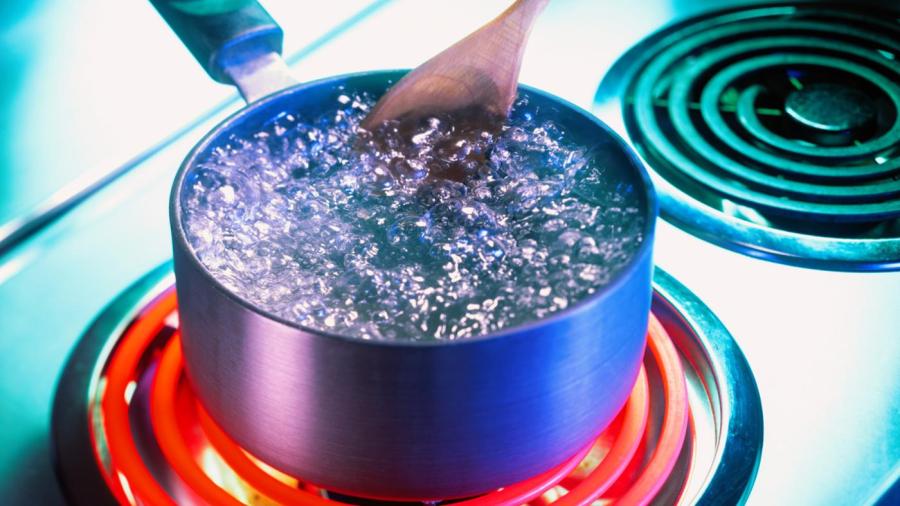Why Is Boiling a Cooling Process?

Boiling can be considered as a cooling process because as a liquid reaches its critical temperature, heat escapes through rapid evaporation. Essentially, boiling happens when liquids turn into gases, forcing excess heat out of the liquid.
According to Exploratorium, hot vapors escape liquid and take energy with them during the boiling process. Because heat is leaving, this is actually a cooling process.
A boiling point is the temperature at which a substance will begin to boil. The bubbles that happen during boiling are not liquid, but actually water vapor trying to escape the liquid. These vapors evaporate, which is why a boiling pot of water will eventually boil down to a dry pot over time.
Kinetic energy increases as heat increases. When the bubbles created during heating escape, high kinetic energy is being released too. What is interesting to remember is that even though this is considered to be a cooling process, the substance being boiled is actually at a dynamic equilibrium. Even though the substance is technically going through a cooling process, the heat will be replaced as long as a heating element is adding heat back into the liquid. That means that the substance will remain at the same temperature.





